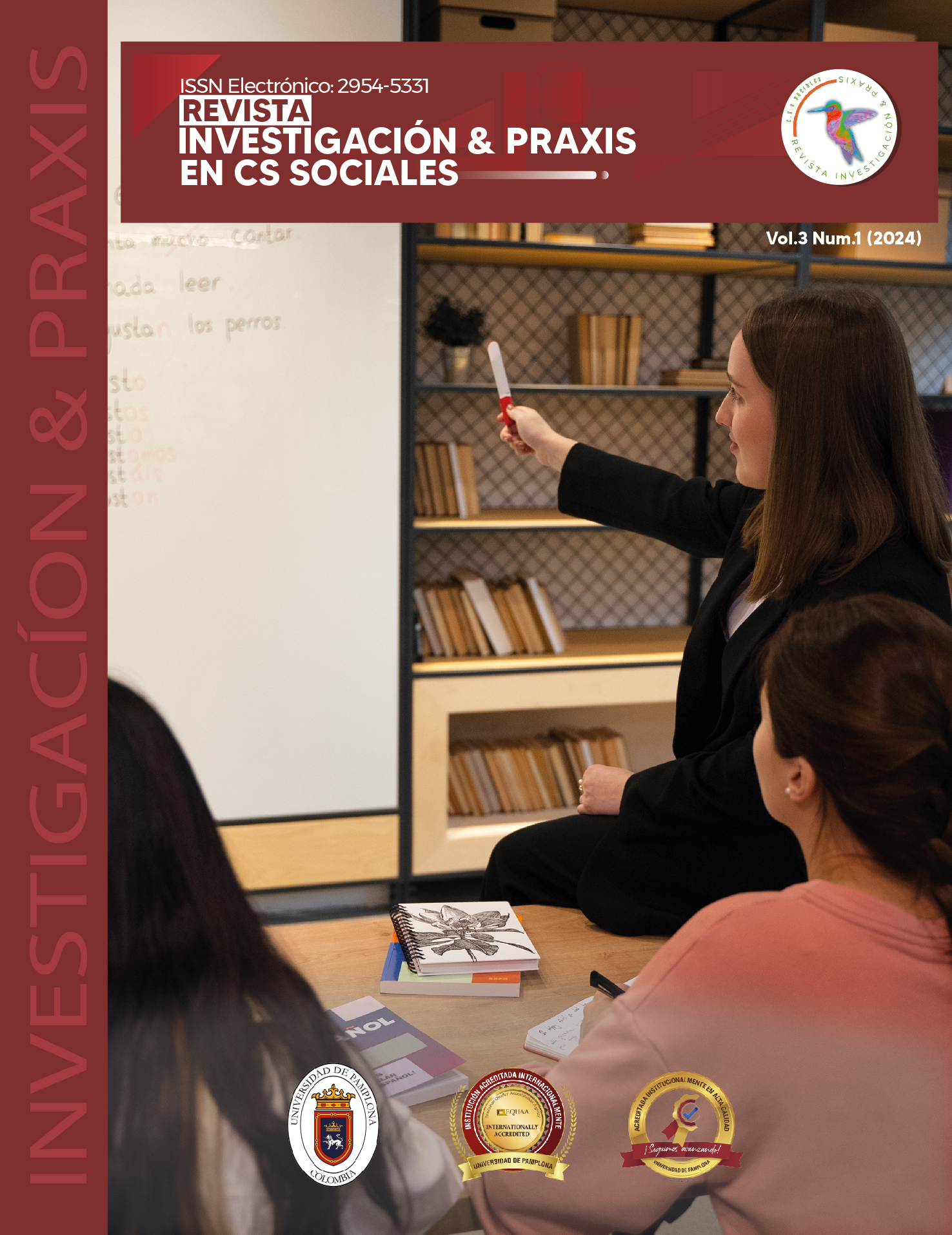Evaluación y aprendizaje basado en competencias: nuevos modelos de evaluación centrados en competencias
DOI:
https://doi.org/10.24054/ripcs.v3i1.3041Palabras clave:
Evaluación basada en competencias, Aprendizaje basado en competencias, Modelos de evaluación, Habilidades del siglo XXI, Rendimiento académico, Evaluación educativa, Competencias, Educación superior, Estrategias educativas, Preparación profesionalResumen
Este artículo investiga la evaluación y el aprendizaje en estudiantes de pedagogía basados en competencias, centrándose en nuevos modelos de evaluación que miden habilidades y conocimientos esenciales para el mercado laboral del siglo XXI. Se identifican prácticas efectivas de evaluación por competencias y se analiza su impacto en el rendimiento académico y la preparación profesional de los estudiantes. Utilizando una revisión sistemática de la literatura y estudios de caso en instituciones educativas, los resultados muestran que estas evaluaciones fomentan un aprendizaje más profundo y relevante, mejorando la capacidad de los estudiantes para aplicar conocimientos en contextos prácticos. La investigación aporta estrategias basadas en evidencias para la implementación de evaluaciones por competencias, destacando su importancia para la formación integral de los estudiantes.
Referencias
Baxter, P., & Jack, S. (2008). Metodología de estudio de caso cualitativo: Diseño de estudio e implementación para investigadores novatos. The Qualitative Report, 13(4), 544-559.
Biggs, J. (1999). Enseñanza para un aprendizaje de calidad en la universidad: Lo que hace el estudiante. Society for Research into Higher Education.
Biggs, J. (1999). Teaching for Quality Learning at University. Open University Press.
Bloom, B. S. (1956). Taxonomía de los objetivos de la educación: La clasificación de las metas educativas. Longman.
Bloom, B. S. (1956). Taxonomía de los objetivos educativos: La clasificación de los objetivos educativos. Longmans, Green.
Bowen, G. A. (2009). Análisis de documentos como método de investigación cualitativa. Qualitative Research Journal, 9(2), 27-40.
Creswell, J. W. (2014). Diseño de investigación: Enfoques cualitativos, cuantitativos y mixtos (4ta ed.). Sage Publications.
Gardner, H. (1983). Estructuras de la mente: La teoría de las inteligencias múltiples. Basic Books.
Gardner, H. (1983). Frames of Mind: The Theory of Multiple Intelligences. Basic Books.
Hincapié Parejo, N. F., & de Araujo, C. C. (2022). Evaluación de los aprendizajes por competencias: Una mirada teórica desde el contexto colombiano. Revista de Ciencias Sociales (Ve), 28(1), 106-122. Universidad del Zulia.
Kolb, D. A. (1984). Aprendizaje experiencial: La experiencia como fuente de aprendizaje y desarrollo. Prentice Hall.
Kolb, D. A. (1984). Experiential Learning: Experience as the Source of Learning and Development. Prentice-Hall.
Morgan, D. L. (1997). Grupos focales como investigación cualitativa (2da ed.). Sage Publications.
Patton, M. Q. (2015). Métodos de investigación y evaluación cualitativa: Integrando teoría y práctica (4ta ed.). Sage Publications.
Stiggins, R. J. (2002). Assessment Crisis: The Absence of Assessment FOR Learning. Phi Delta Kappan, 83(10), 758-765.
Stiggins, R. J. (2002). Crisis de evaluación: La ausencia de evaluación PARA el aprendizaje. Phi Delta Kappan.
Vygotsky, L. S. (1978). El desarrollo de los procesos psicológicos superiores. Harvard University Press.
Vygotsky, L. S. (1978). Mind in Society: The Development of Higher Psychological Processes. Harvard University Press.
Publicado
Número
Sección
Licencia
Derechos de autor 2024 Revista Investigación & praxis en CS Sociales

Esta obra está bajo una licencia internacional Creative Commons Atribución 4.0.










